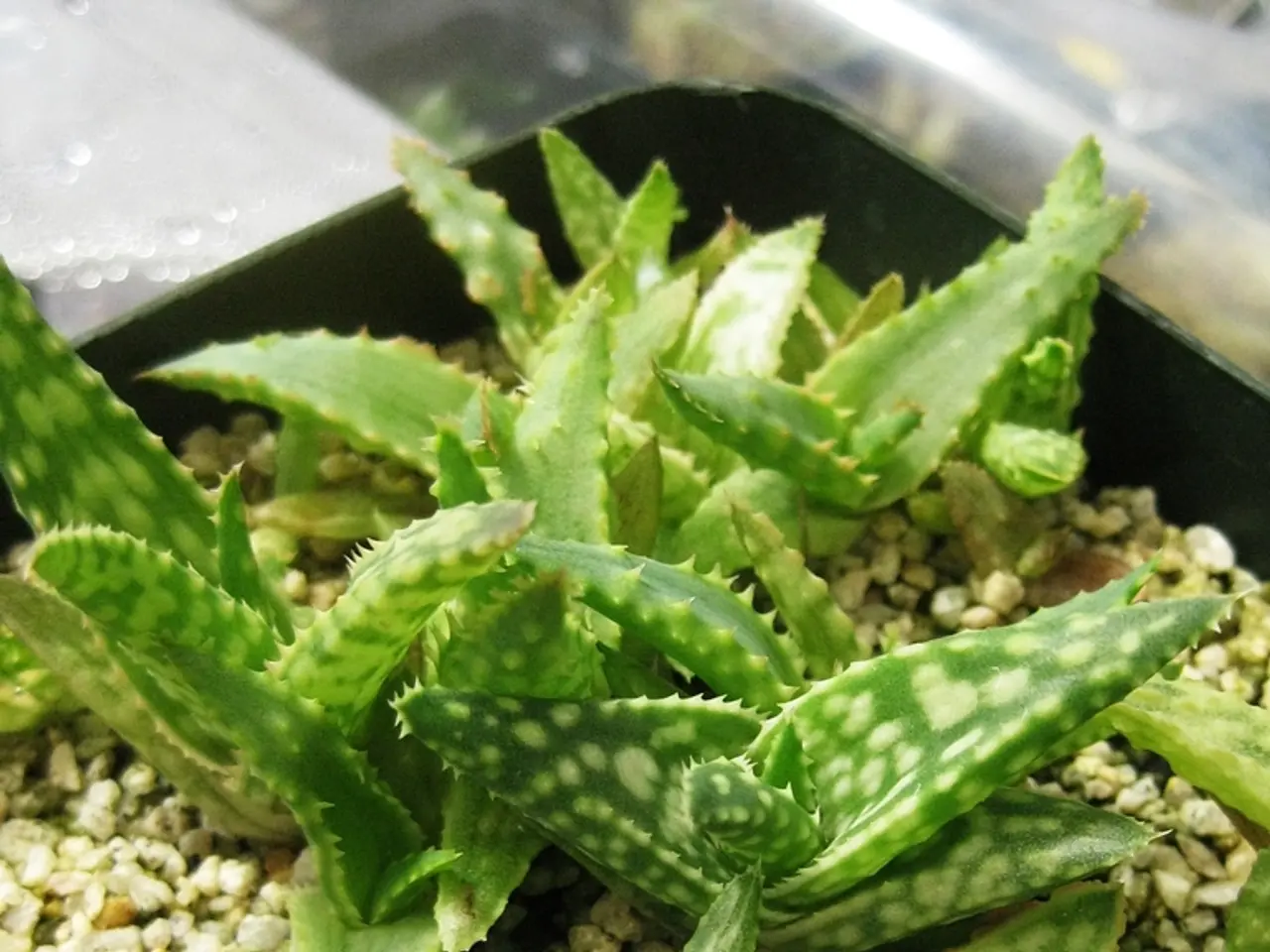Utilizing Aloe Vera for Acne: Exploring 7 Strategies to Combat Pimples with Aloe Vera
In the quest for clearer skin, many individuals are turning to natural remedies, and one ingredient that has gained significant attention is aloe vera. Known for its anti-inflammatory, antibacterial, and soothing properties, aloe vera is a popular choice in the world of natural acne treatments.
While aloe vera is generally safe, it's essential to note that some people may develop an allergic reaction to it or other ingredients used in aloe vera treatments. If you experience any symptoms, it's crucial to stop using the treatment and consult a doctor.
Pure aloe vera cream can serve as an alternative to a traditional cleanser, helping to prevent acne breakouts. For those seeking a more holistic approach, various natural ingredients can be combined with aloe vera to enhance its effectiveness.
One such ingredient is turmeric. Containing curcumin, turmeric boasts strong anti-inflammatory and antimicrobial properties, making it an effective ally against redness, inflammation, and bacterial acne. To use, simply mix a pinch of turmeric powder with aloe vera gel for a face mask.
Green tea, rich in polyphenols that reduce inflammation and sebum production, is another ingredient that complements aloe vera. Brew and cool green tea, then mix a few tablespoons with aloe vera gel for a refreshing facial mist or mask base.
Chamomile, known for its calming and anti-inflammatory effects, can help soothe irritated acne-prone skin. Steep chamomile tea, cool, and mix the tea with aloe vera gel for a soothing toner or mask.
Neem, with its potent antibacterial and antifungal properties, is effective against acne-causing bacteria. Mix neem oil or neem leaf powder with aloe vera gel for a spot treatment or mask.
Rose water, which soothes and helps balance the skin’s pH, can be combined with aloe vera gel in a spray bottle for a refreshing face mist. Essential oils like lavender, rosemary, and frankincense, known for their anti-inflammatory and antibacterial benefits, can also be added to aloe vera-based masks or mists.
Clay, such as bentonite, kaolin, or French green clay, absorbs excess oil and impurities, helping to unclog pores. Mix a small amount of clay powder with aloe vera gel and water to make a paste and apply as a mask. Oatmeal, which soothes irritated skin and helps reduce inflammation and redness, can be mixed with aloe vera gel for a calming mask.
By addressing different aspects of acne, such as inflammation, oil control, bacterial infection, and irritation, these combinations can significantly enhance the acne-fighting properties of aloe vera. Always remember to patch test new ingredients to rule out allergies or sensitivity before use.
Whether you're using aloe vera alone or in combination with other natural ingredients, it's crucial to maintain a consistent skincare routine. Incorporating aloe vera cream into your everyday acne-fighting regimen may prove beneficial due to its anti-inflammatory properties.
From homemade face masks and scrubs to store-bought products, aloe vera is a versatile ingredient that can help you achieve clearer, healthier skin. Embrace the power of nature and give aloe vera a try in your skincare routine today!
- In some cases, obesity may lead to a higher risk of developing asthma, as excess weight can put pressure on the lungs and aggravate symptoms.
- Science continually researches potential links between obesity and various health conditions, including Alzheimer's, beauty standards, and heart diseases.
- CD (Conditional Disease) is one of the eight criteria in the World Health Organization's (WHO) definition of health, emphasizing the connection between an individual's health and their environment.
- AQ (Air Quality) plays a crucial role in health-and-wellness; poor air quality can exacerbate conditions such as asthma and HIV.
- Skin-care regimens often use various natural ingredients, such as aloe vera, turmeric, green tea, chamomile, neem, rose water, and essential oils like lavender, rosemary, and frankincense, due to their anti-inflammatory and antibacterial properties.
- Multiple sclerosis (MS) is a chronic disease of the central nervous system, and despite ongoing research, its cause remains unclear, suggesting a complex interplay between genetics, Environment, and AQ (Air Quality).




